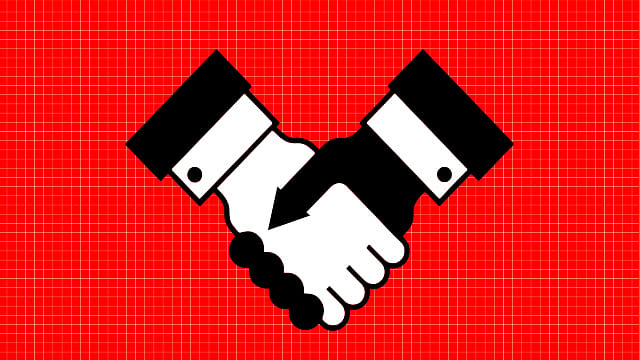Re-evaluating earn-outs
ADVERTISEMENT

Earn-outs are a key aspect in M&A deals which ensure that both parties’ commercial objective is achieved. This is therefore, often, carefully negotiated and agreed between the seller and acquirer. One of the key considerations for determining the acquisition price in an M&A deal is the future growth potential of the business being acquired. No strategic acquirer will consider acquisition of a company unless there is commercial benefit.
Even though the acquirer undertakes a diligence of the business to ascertain its worth as well as its potential, the growth prospects of the business are not guaranteed. Therefore, many a times the acquirer and seller may attribute different valuations to the business. It is in such a situation that an earn-out is typically negotiated, wherein the acquirer will attribute a portion of the consideration to the financial goals projected by the company and agree to pay the same at a future date if the said goals are achieved. An earn-out could therefore be beneficial to both the parties, since from the acquirer’s perspective, the economic risk is shared with the seller, and from the seller’s perspective, he would stand to financially benefit if the business does in fact achieve the set goals, rather than agreeing to a lower acquisition price at the time of closing.
Earn-outs can be structured in multiple ways. In addition to, or as an alternative to, cash earn-outs, often times, a seller may receive stock options or restricted stock units (usually of the acquirer entity) and the vesting of the options/units are dependent on the performance goals of the seller or the financial goals of the acquired business.
Given the Covid-19 pandemic and the impact it has had on businesses, it is inevitable that some or most of the businesses will be unable to keep up with the future performance goals, basis which the acquirer and the seller had negotiated the financial terms of the deal. The question that arises is, what happens to the seller’s earn-out given that the financial goals of the company may not be achieved in light of Covid-19?
It is not typical for share purchase agreements in M&A deals to include a clause on ‘force majeure’, on which the financial goals of the company are contingent. It is also unlikely that executed share purchase agreements contemplate a situation of the current nature, on which the parties can rely and decide the way forward. Because of the absence of such a clause, will the acquirer be entitled to walk away from his earn-out obligation, by citing non-achievement of the financial goals? Perhaps, yes. The contention that an acquirer will likely resort to, particularly if the earn-out is agreed to be paid in cash, is to state that since the earn-out is linked to the actual earnings of the company, the seller will not be entitled to an earn-out unless the earnings are achieved, or will only be entitled to a pro-rated earn-out, where the contract provides for such pro-rata payment.
Alternatively, another option is for the parties to reset the financial goals of the company in light of Covid-19 and extend the timelines for the earn-out to a future date. However, it would need to be carefully examined by the parties if such an option is feasible depending on the structure of the earn-outs agreed between them. It is not out of context to mention that resetting the timelines and extending the earn-out period could also affect the seller’s plans, since usually, the seller is required to remain in the company in the capacity of a key employee or board member after the purchase of the business and until the earn-out is paid out or the stock options/units have vested. It is not unheard of for the seller to exit the company after the earn-out period, given that the seller may not want to continue under a new management with little to no say in the operations of the company and therefore, will be keen on keeping the earn-out period as short as possible.
If cash has not yet changed hands for sale of the business, now is the right time for parties to re-negotiate the structure of earn-outs. Both parties are likely to be willing to relook at the earn-out obligations and earn-out structure. The acquirer may be willing to accept a lower earn-out threshold but offer a non-cash earn-out, even if it is higher in share value terms. It would be prudent for an acquirer to agree to a non-cash earn-out, since the acquirer may want to preserve any cash in the company for growing the business or meeting the other urgent expenses of the company.
The seller may also accept a non-cash but higher share value earn-out since achieving the projections that were contemplated pre-Covid would seem unlikely given the situation and especially if the company operates in a vulnerable sector. Additionally, accepting a non-cash earn-out may be more desirable for a seller, because otherwise the acquirer may walk away from the deal if there is a ‘material adverse effect’ (MAC) clause in the agreement. MAC is a standard clause in any M&A transaction document and entitles an acquirer to terminate the agreement pre-closing if the financial status of the company is or is likely to be adversely impacted for any reason.
It will be interesting to see how such structures are re-modelled and what new compensation structures are likely to emerge in the context of the Covid-19 epidemic.
Views are personal. Ramachandran (L) Is partner at law firm J. Sagar Associates. Nayak is senior associate at J. Sagar Associates.